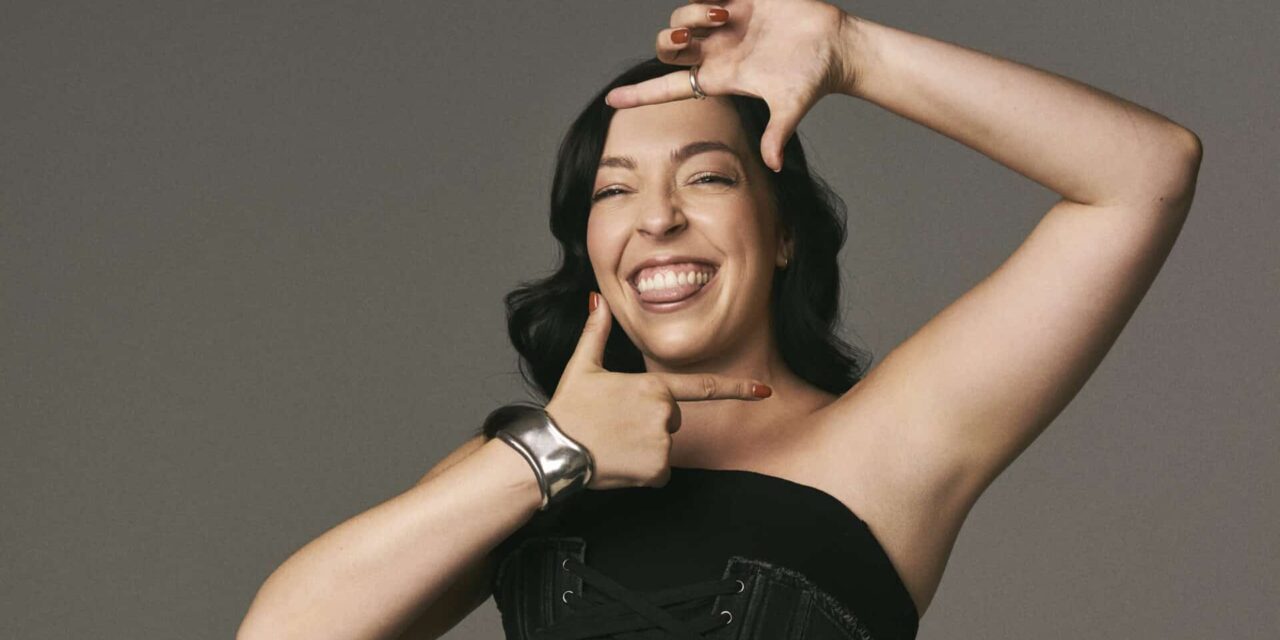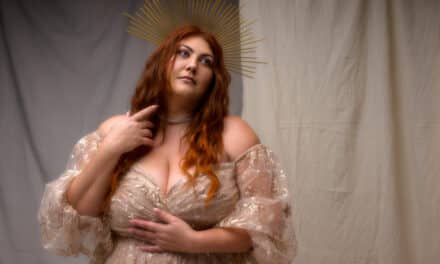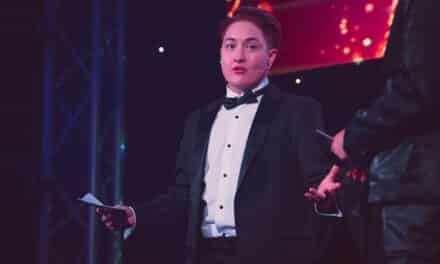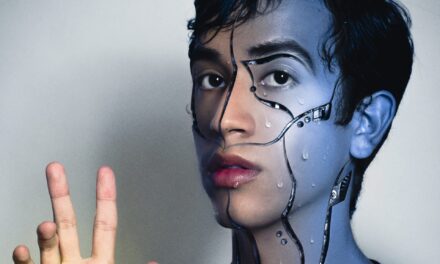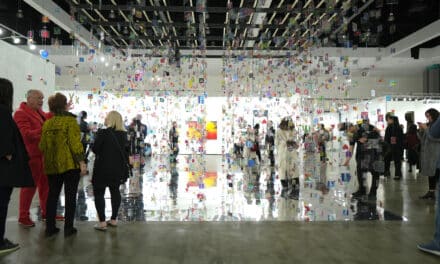Photo Credit
Photographer: Ben Cope
Stylist: Anna Schilling
Hair/Makeup: Blondie
Amanda Golka didn’t set out to be your favorite internet commentator — it just kind of happened. With a camera, an honest streak, and the willingness to dig through the chaotic layers of pop culture and consumerism, she built Swell Entertainment, a YouTube channel-turned-cultural barometer, into something bigger than anyone expected. Now, with over half a million followers and more than 90 million in engagement reach, Amanda’s voice doesn’t just echo online — it resonates.
But don’t mistake the numbers for the mission. Amanda isn’t here to sell you another face mist or fake enthusiasm for the latest brand drop. She’s here to ask the uncomfortable questions: Why are we so obsessed with aesthetics we can’t afford? Who is really profiting from “relatable” content? What happens when a creator says no? These aren’t clickbait. They’re the backbone of a creator who has, frankly, seen some sh*t — and decided to do it differently.
From taking on sketchy product collabs to unpacking the anatomy of a viral TikTok trend, Amanda operates like a one-woman media watchdog. Her commentary cuts through the glossed-over language of influencer press kits and lifestyle launches. Instead, she opts for transparency: what works, what’s garbage, and what might actually be worth your time. It’s a formula rooted in curiosity and discernment — not the usual performative hype.
Lately, her videos have expanded beyond product reviews and into full-blown cultural analysis. Fashion cores? She’s got takes. Beauty favorites that work across time zones? She’s been testing them in between airport layovers. The blurring line between fandom and fashion? Amanda’s already 10 steps ahead, tracking how stan culture is shaping everything from indie perfume labels to the rise of “soft boy” business casual.
“I think we’ve moved past the era where authenticity means showing your acne in one post and then selling a $300 serum in the next,” Amanda tells us. “People want depth. They want to know what’s real. And real doesn’t always go viral.”
It’s that kind of self-awareness that makes Amanda such a necessary voice in the increasingly exhausting creator economy. While many influencers are chasing trends like clockwork, Amanda has learned the art of pause. Not just for strategy, but survival. At 18, a stress-induced case of Bell’s Palsy forced her to reexamine everything — her work pace, her boundaries, her health. That experience didn’t just slow her down; it redefined her compass.
Now, she’s vocal about setting sustainable boundaries in an industry that rewards burnout. She talks openly about declining brand deals that feel off, the awkward dance of maintaining integrity while staying employable, and why sometimes the best thing a creator can do is log off.
And yes, she’s still making content — the kind that doesn’t just chase algorithms but pushes back on them. Between writing her upcoming book, developing her first screenplay, and maintaining her own creative rituals (non-negotiable, she says), Amanda is building a career that exists beyond the screen. “It’s easy to lose yourself online,” she says. “The hardest part is figuring out what success means on your terms — and protecting it.”
Amanda Golka isn’t interested in being the internet’s favorite girl next door. She’s more like the big sister who sends you a voice note warning you that your favorite skincare brand is just repackaged drop-shipping. She’s honest. She’s weirdly comforting. And most importantly — she’s one of the few voices who still feels like a person, not a pitch.
In a digital landscape that thrives on polish and pretense, Amanda is a little chaotic, a little skeptical, and deeply grounded — and maybe that’s the most influential thing of all.
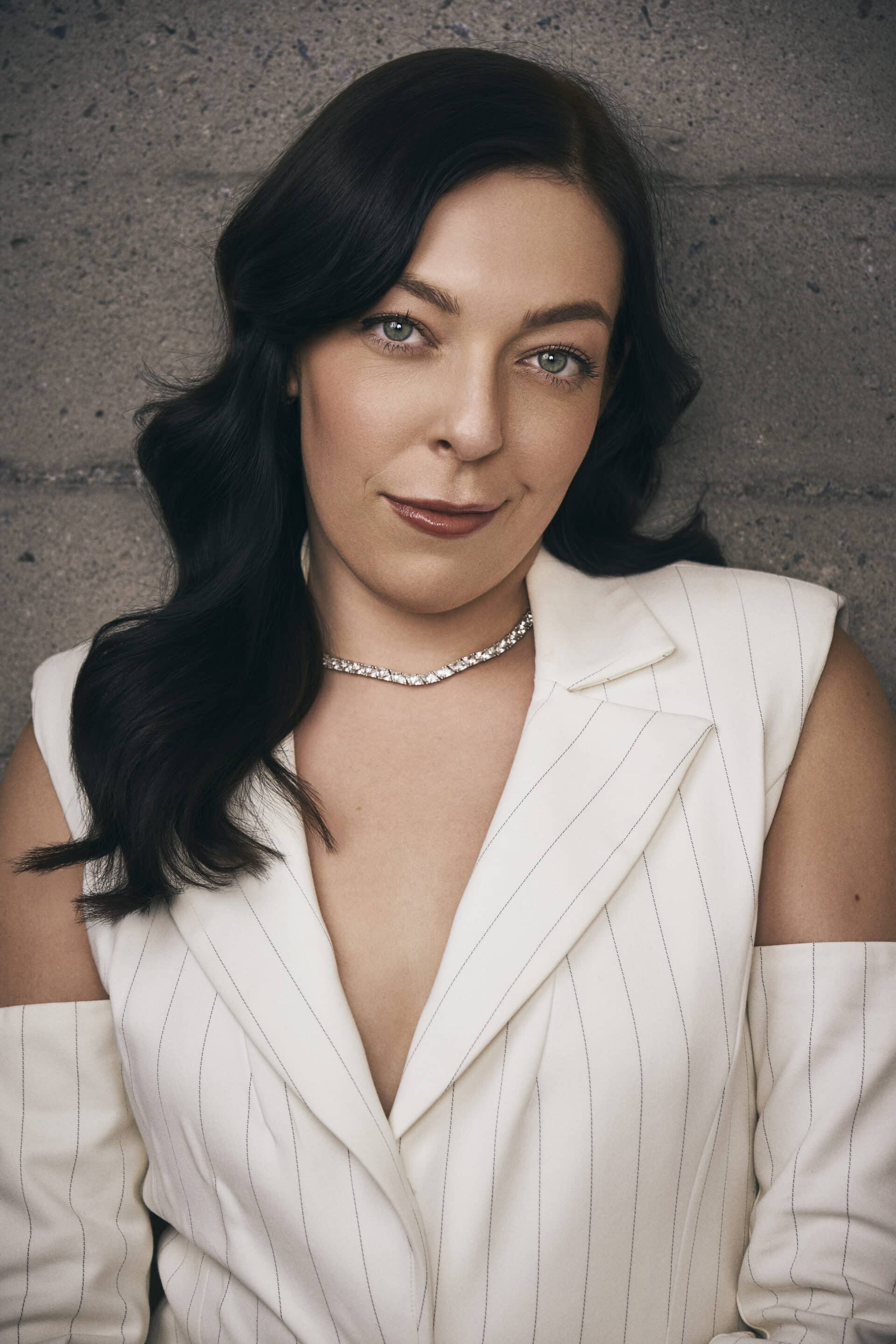
You’ve built a platform on honesty in an industry that often rewards gloss and spin. Was there a moment you decided you just weren’t going to play by those “polished influencer” rules?
Honestly no because I’ve been making content since before it was seemingly even possible for people who weren’t models or Kardashians to become influencers. I grew up watching Youtubers and when I was sixteen, that’s what I thought would help me get discovered, making videos on horror movies and haunted houses. If anything, when I came back to content after a two-year hiatus, I decided to combat the influencer boom by reviewing products they were pushing in depth. So, I suppose it was when I was twenty if we want to put a timestamp on it.
You’re one of the rare creators who can call out hype without coming off cynical. How do you decide which trends or products are worth your attention — and which ones are just noise?
It usually has to come to me in threes for me to see it as a possible topic. Three times across any of my feeds, bonus points if it hits my feed on three different platforms. But sometimes I just find one video on something and it catches my interest, normally that’s the case for events I choose to review. Topics and products I require more from since I usually try to dig into trending topics or things I believe will be discussed at length soon. Honestly it usually takes something very basic for me to classify it as just noise, like the brand themselves claiming their product is crazy viral but no one else is talking about it.
At 18, you had to completely rethink your relationship with “always-on” culture after your Bell’s Palsy diagnosis. What did that experience teach you about resilience and boundaries that you still carry today?
That I am human. Unfortunately, I do not listen to the voice in my head reminding me of that fact these days but in my defense, there are so many cool things happening all the time and I want to cover all of them! Overall, it did teach me I need to listen to my body because no one else can truly tell what my limits are but me. The reality is I got Bell’s palsy after leaving an abusive household, so more than anything that experience has made me more discerning about who I let into my life and who I spend my time with.
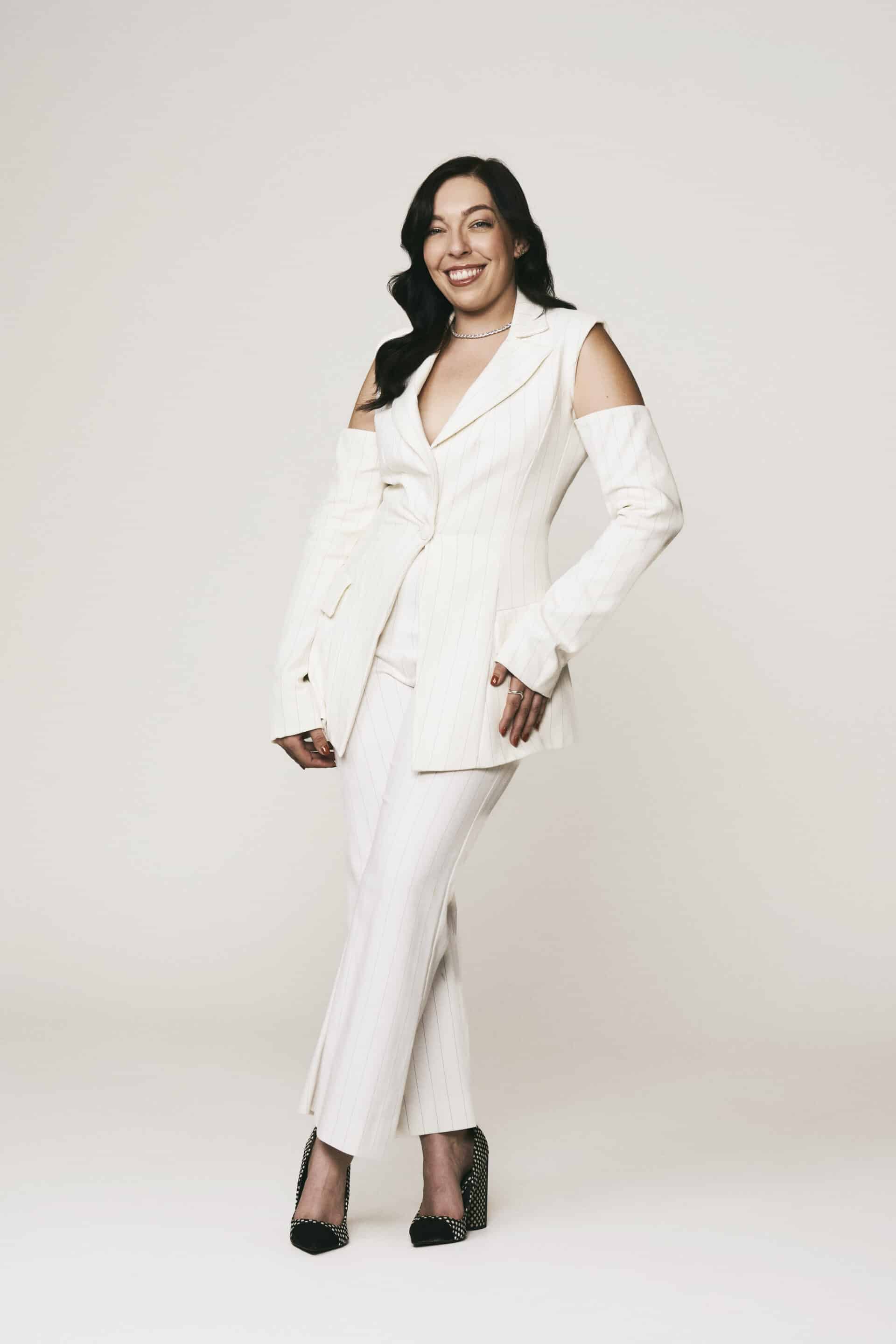
You’ve said before that saying no is a superpower in this industry. What’s one opportunity you turned down that actually helped you grow your brand and keep your integrity?
It’s hard to quantify something that you didn’t do, and it’s affected your career, I guess. It comes down to if it isn’t a hell yes, it’s a hell no. If I hesitate while thinking about doing something it’s a definite no. Honestly, I have never regretted saying no to something because it typically gets proved I made the right decision down the line, not in growth of my brand but in something bad coming out. I just never want to put myself in a position where I feel I need to compromise my morals to make a rent payment, being on top of where my money comes in helps with that.
A big part of your content celebrates aesthetics and fashion/fandom “cores.” Which aesthetic or niche right now actually feels authentic to the cultural moment — and which are already overdone?
I genuinely have no idea if this is still in the zeitgeist, but I am a big fan of dopamine dressing or dopamine decor “core”. Basically it’s maximizing wearing pieces you love or decorating your space with things that are fun for you. This is very individualized because obviously what is fun to everyone is subjective, but I love that in a time of economic uncertainty and turmoil people are choosing to deck out their spaces or themselves in things that maximize their joy. Overdone is whatever TikTok creators tell me is hot based on some type of “here is how to dress in the X aesthetic” video.
You’ve built trust with your audience in a way that brands still struggle to understand. What’s the biggest mistake brands make when they approach creators like yourself?
Not trusting that I know my audience. So many brands see creators only as their follower count, and not for the brands we ourselves are. I know how to talk, what points to hit, and what features to highlight from your brand that will resonate with my audience. Trust that I know them better than you do. Also, audiences like mine prefer recurring partners versus one offs. If I take a deal, it means I like the product or service and I can see a long-term partnership with them, but so few brands are willing to do deals like that with creators these days it feels.
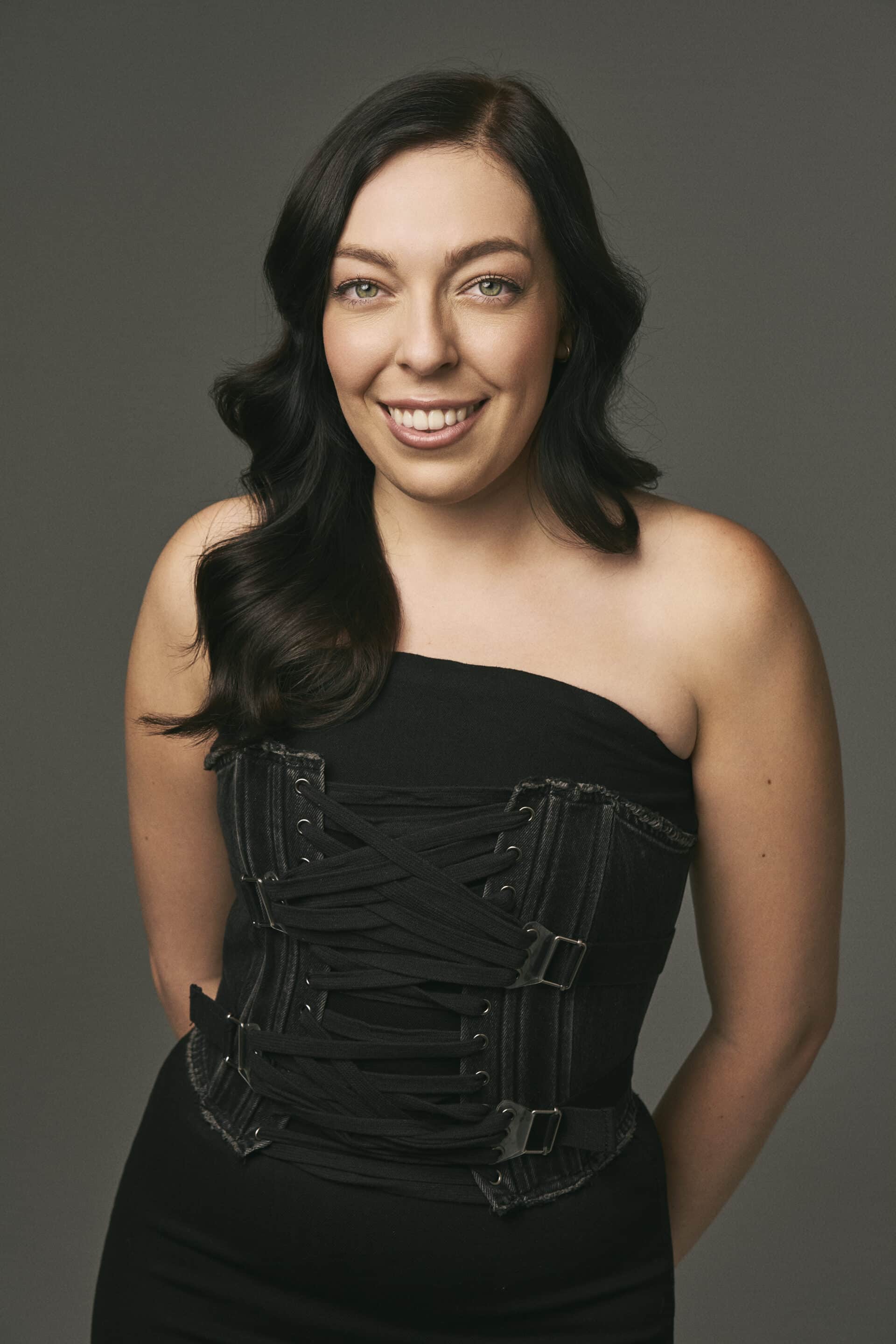
Balancing honest criticism with industry relationships is a fine line. Have you ever gotten real backlash for being too honest? How did you navigate that?
Oh absolutely. I deal with it by moving on with my day and joking about it in videos. It’s funny because it’s often something like “We like Amanda but we cannot handle her making another video on us” from events which I find funny. Like hello let’s fix the problems I brought up with your event this seems like a no brainer to me. I’ve been confronted about my reviews before and it’s always a trip because they clearly expect me to switch up once they are in front of me. I do not say anything online I wouldn’t say to someone’s face whether they put on an event or are the subject of a commentary video. People seemingly aren’t used to that from online creators. Normally once they realize I will not just say I didn’t mean it and that I liked something I said I didn’t, we can move forward and have a productive conversation.
You’ve mentioned your creative rituals as “non-negotiable” — what are some of those rituals, and how do they keep you grounded when everything online feels chaotic?
I have a dog named Hermes who gets me outside regularly. When I post a video, I make myself take him for a walk or go run an errand so I don’t just sit at my computer refreshing the analytics page. I also think offline hobbies are important for maintaining creativity. Right now I have gotten back into crochet and am trying to teach myself how to draw by just practicing every day. I might try to learn Japanese next. Thankfully the nature of my chosen content niche requires me to venture out into the world to experience events and be around people so that helps remind me that the internet isn’t all that’s out there.
With your upcoming book and first screenplay on the horizon, what kinds of stories are you most excited to tell beyond the social media sphere?
I’ve been a big horror movie nerd for years and I just don’t get the chance to cover them on Youtube as much as I would like. A lot of the fiction I’ve been working on is horror or suspense. I have a concept for a novel I’ve been thinking about (because I can’t ever work on one thing at a time) that’s a cat and mouse story, except both of the main characters think they are the cat in the equation.
The creator economy evolves at breakneck speed — algorithms change, platforms rise and fall. What’s your best advice to younger creators who want longevity without losing themselves?
Oh my god, please find your own voice in this mess we call the internet. The worst thing you can do is just try to ride the trend bubble or copy whatever you think someone is doing that made them grow. Play around with different topics! Editing styles! Formats! Find out what you like making and an audience will be able to see that and tag along for the ride.

